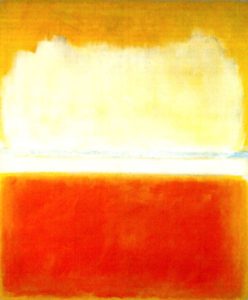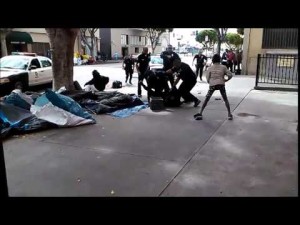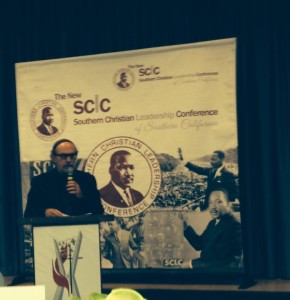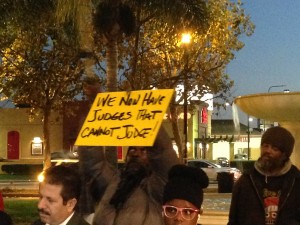On Tuesday, twenty three faith leaders were arrested on Spring St. in Downtown Los Angeles. They were sitting in a line in the street stretching from the former federal court house where the Attorney General has an office, to the Hall of Justice which houses the District Attorney and the Sheriff of the County of Los Angeles. As the sun rose high over the Hall of Justice and began baking the streets, officers with the Los Angeles Police Department began the process of putting zip ties on the hands of the faithful and transporting them to Parker Center. I was among those faith leaders.
We were disrupting morning traffic during rush hour because Jeff Sessions was disrupting, or rather, destroying the lives of thousands of refugee families seeking asylum in our country—families who fled violence and oppression in their own countries and ended up in a nightmare in ours. Children taken from their parents. Parents not knowing where their children were anymore. The Attorney General had come to Los Angeles to go to court to reinforce the separation and incarceration (by having the court overturn the Flores decision) and we had had enough. Twenty three clergy sat down to say, at a time when Jeff Sessions claims that it is lawful to incarcerate children, we too should be incarcerated.
But this is not a story about one demonstration and the civil disobedience that followed it. Continue reading




